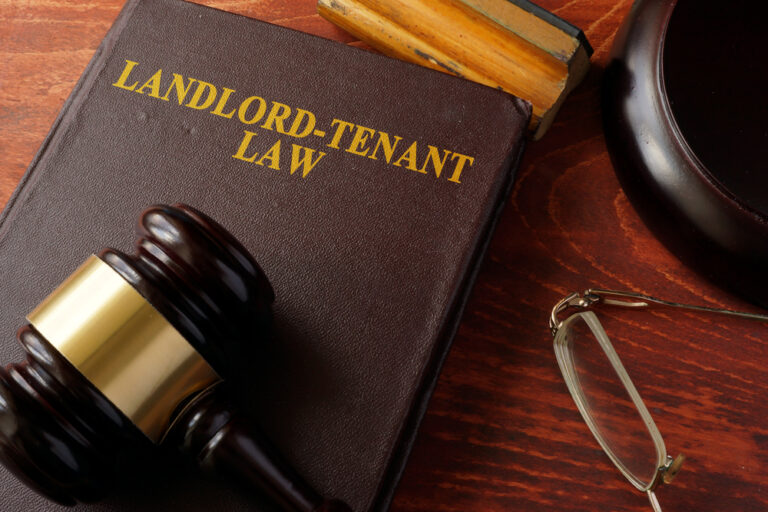Overview of San Diego’s Eviction Control Ordinance
California has a statewide “just cause” eviction control ordinance (CCP 1946.2), requiring an eviction to be based on one of the enumerated reasons set forth in the statute. Many local jurisdictions, including the City of San Diego, have enacted their own just cause eviction control ordinance. Here is a summary of the salient aspects of San Diego’s ordinance, found in San Diego Municipal Code §98.0730 (“Tenants’ Right to Know Regulations.” San Diego Municipal Code §§ 98.0701–98.0760. Adoption date 3/04.)
Which Properties/Tenancies are Covered by the Ordinance?
The Ordinance covers residential tenancies of two years or longer. Properties exempt from the Ordinance include:
Institutional Facilities (hospitals, extended care facilities, etc.);
Housing provided by educational institutions;
Government Agency Owned or Subsidized Units (including Section 8 housing);
Rooms Rented to Boarders, including rental units which the landlord owns and shares facilities with the tenants, and occupies the rental-unit or a unit in the same building as his or her principal residence;
Rental-Units in Hotels, Motels, or Rooming Houses Rented to Transient Occupants;
Mobile Homes subject to Mobilehome Residency Law (California Civil Code, Chapter 2.5).
What are the Authorized Reasons for Eviction
The ordinance lists several allowed reasons justifying the eviction of a tenant. Specifically, a landlord has just cause to evict in the following situations:
Nonpayment of Rent;
Violation of Obligation of Tenancy. The tenant has violated a lawful and material obligation or covenant of the tenancy, unless the alleged violation involves the tenant holding over after expiration of a specified term of the tenancy;
Nuisance. The tenant is committing a nuisance or permitting a nuisance. This covers situations where the tenant has caused damage to the rental-unit, or is creating an unreasonable interference with the comfort, safety, or enjoyment of any of the other residents of the housing complex;
Illegal Use. The tenant is using or permitting the rental-unit to be used for an illegal purpose;
Refusal to Renew Lease. The has refused, after written request by the landlord, to execute a written extension or renewal thereof within the written period prescribed by the lease or state law for a further term of like duration with similar provisions;
Refusal to Provide Access. The tenant has refused to give the landlord reasonable access to the rental-unit;
Correction of Violations. The landlord, after having obtained all necessary permits from the City of San Diego, seeks to recover possession of the rental unit for necessary repair or construction when removal of the tenant is reasonably necessary to accomplish the repair or construction work;
Withdrawal of Residential Rental Structure from the Rental Market. The landlord intends to withdraw all rental-units in all buildings or structures on a parcel of land from the rental market;
Owner or Relative Occupancy. The landlord, or his or her spouse, parent, grandparent, brother, sister, child, grandchild (by blood or adoption), or a resident manager plans to occupy the rental unit as their principal residence.
Notice Requirements
Any landlord who attempts to terminate a tenancy pursuant to any of the grounds set forth in section 98.0730 must provide the tenant a written notice to quit or terminate which recites the grounds under which the landlord is proceeding. The landlord shall provide the notice prior to or at the same time as the written notice of termination set forth in Civil Code section 1946.1, or a three-day notice described in Code of Civil Procedure sections 1161 and 1161a, is served on the tenant.
Other Features
In an eviction lawsuit brought by the landlord to recover possession of the rental, the tenant may raise as an affirmative defense the landlord’s failure to abide by Ordinance. Further, even for those properties not covered by the Ordinance, there are still restrictions, and a tenancy cannot be terminated for the wrong reasons. Evictions based on discrimination or retaliation are precluded by other Federal and State statutes.
Please contact Lynx Legal Services with any questions regarding the above, or if you are ready to start a case. We can be reached at 925-237-9216, toll-free at 888-441-2355 or online at info@lynxlegal.com. You can also schedule a telephonic consultation with one of our representatives by selecting the “Schedule a Consultation” tab on our website.
